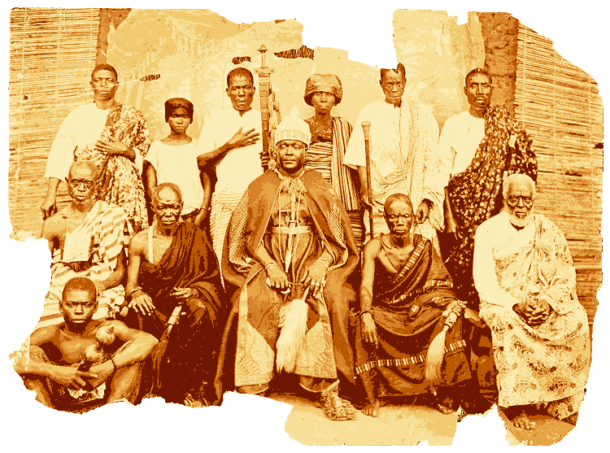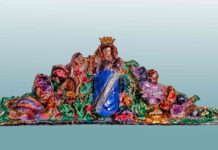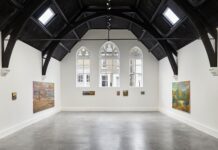
Visitors to Brixton will, from today (7 March), be able to experience the everyday life of West Africa in the first half of the last century.
(BCA) on Windrush Square have transformed three rooms to create a detailed snapshot of life in what was then known to Europeans as the Gold Coast and is today Ghana.
They are part of the BCA’s new exhibition, Family Ties.
It is based on newly acquired documents – the Adamah Papers – and will give visitors insights into life of Anlo-Ewe (Anlɔ-Eʋe) people in West Africa as long ago as 1885.
The collection takes in Ghana’s history, the British occupation and how colonialism was resisted, alongside many generations of family history.
Backed by National Lottery funding, BCA spent two years on conservation, research and the exhibition project.
The Adamah Papers are unique and record the relationship between Britain and the Gold Coast, present-day Ghana, the untraced migration of the Anlo-Ewe people, and traditional spirituality through the eyes of the Adamah family.
They are, in large part, the story of King Togbui Adamah II, an Anlo-Ewe who ruled the Some people from 1915 until 1963.
London spoken-word artist Yao “Tuggstar” Togobo entrusted BCA with the responsibility of preserving and revealing the significance the papers.
The resulting exhibition captures the narratives displayed in traditional archives and those woven into the cloths, family legacies, oral stories and legends handed down over generations.
BCA says that these insightful historical narratives could have been lost without the actions of those safeguarding this history.
Visitors are promised an “intimate and spiritually powerful exhibition” that incorporates archive documents, textiles, objects, photographs, film, oral history and uses the language of the Anlo-Ewe people.
“It is a bold presentation of a family history that reaches across the seas from Ghana to Britain.”
The papers came to light when the granddaughter of King Togbui Adamah II, clearing out the home of a relative in London, came upon boxes of paperwork.
Donated to Black Cultural Archives in 2014, they are a mixture of handwritten and typescript letters, newspapers, photographs, and personal papers.
The exhibition also includes audio based on oral history interviews and cultural music.
BCA says that this is, quite possibly, the first time Ewe culture has been presented in this way, outside of traditional cultural realms.
The exhibition “contains some amazing artefacts to detail just how colonialism worked and the impact it had on the people in the colonised regions.
“Here we have a chance to hear the stories of the people that lived these lives and in their own words.”
Family Ties toured to Manchester Central Library in April and May last year.
The exhibition is curated by Natalie Fiawoo, exhibition design is by Skellern Studio and graphic design by Graphic Seeing Things.
A number of events are planned to coincide with the exhibition, including family history workshops, spoken word events and school workshops.






